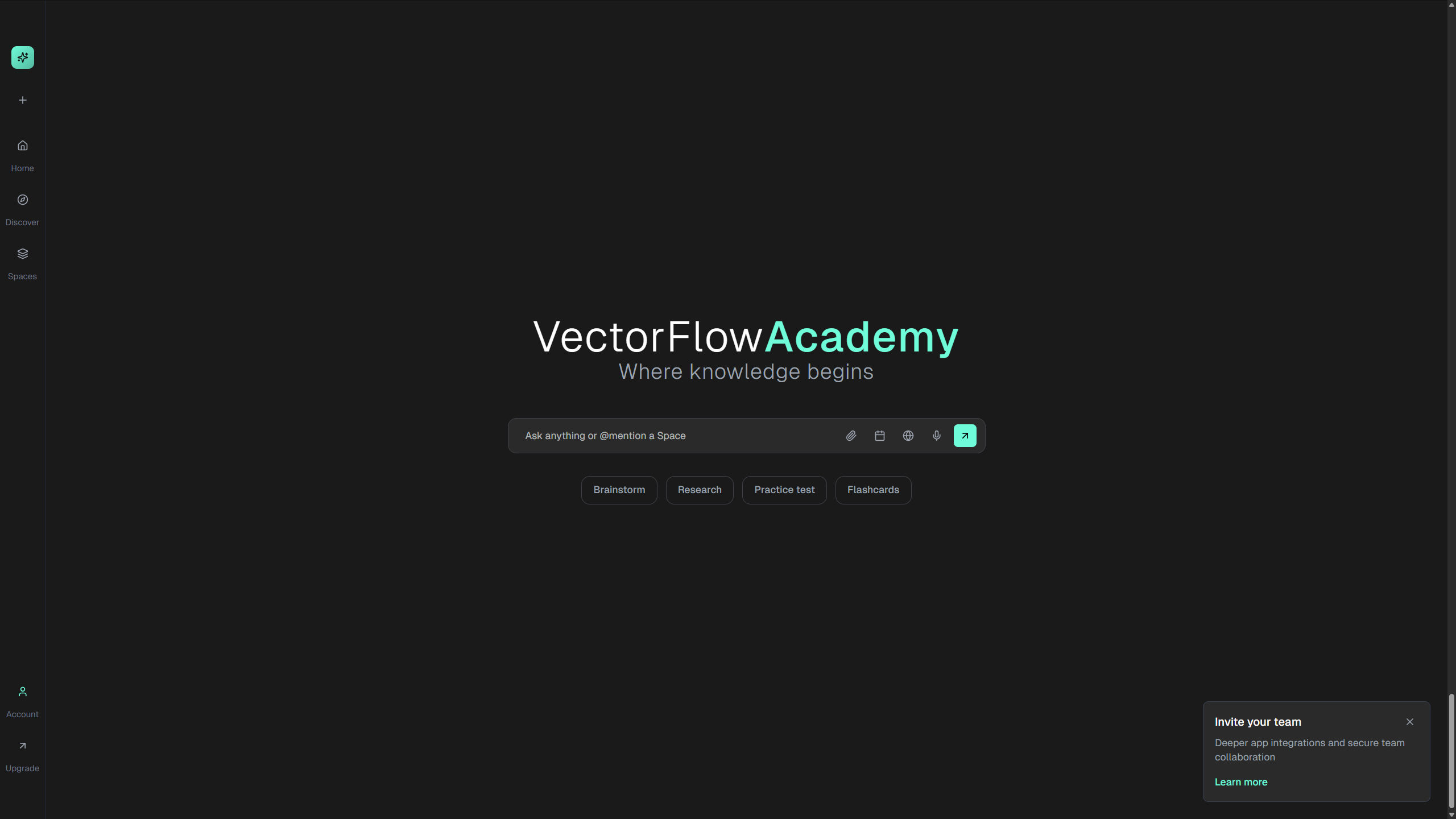Unleash the Power of Collaborative Knowledge
Go beyond personal notes. Get intelligent answers from the collective expertise of your entire academic community.

Go beyond personal notes. Get intelligent answers from the collective expertise of your entire academic community.

Ask VectorFlow for real-time answers, verifiable sources, and a powerful collaborative hub to streamline your studies.
Shared Notes & Ideas
Build a common pool of knowledge with notes and articles from classmates.
Answers with Sources
Every AI answer shows where it came from, so you can double-check easily.
Ask & Find Together
Save time by seeing past questions and the top AI-powered answer.
Checked by Peers
Keep answers accurate with peer reviews, ratings, and approvals.
Quick AI Summaries
Turn long textbooks or articles into short, simple summaries you can revise faster.
Easy Uploads
Add your notes, PDFs, or links in one click to grow the shared library.
Shared Notes & Ideas
Build a common pool of knowledge with notes and articles from classmates.
Answers with Sources
Every AI answer shows where it came from, so you can double-check easily.
Ask & Find Together
Save time by seeing past questions and the top AI-powered answer.
Checked by Peers
Keep answers accurate with peer reviews, ratings, and approvals.
Quick AI Summaries
Turn long textbooks or articles into short, simple summaries you can revise faster.
Easy Uploads
Add your notes, PDFs, or links in one click to grow the shared library.
VectorFlow seamlessly transforms the way you study by turning collective contributions into intelligent, source-backed answers.
Choose a plan that fits your academic journey, from individual study to
large-scale collaborative research.
Perfect for research teams and study groups
Designed for academic institutions and large organizations
Everything you need to know about VectorFlow and how it can transform your learning workflow